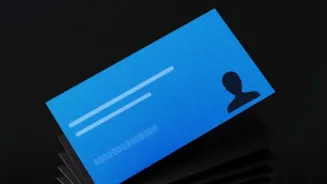Unveil the power of personal branding in 10 steps! Elevate your professional recognition. Read now!
In today's hyper-connected world, where job markets are competitive and opportunities abound, standing
out from the crowd is crucial for professional success. One of the most effective ways to achieve this is by cultivating a strong personal brand.
Think of it as your professional reputation – the unique combination of skills, experiences, and personality that makes you, well, you. It's how people perceive you and what they remember you for.
Building a personal brand isn't just for entrepreneurs or celebrities; it's a valuable asset for anyone looking to advance their career, attract new clients, or simply make a bigger impact in their field. But where does one begin? Fear not!
This article outlines ten practical steps to define your personal brand and achieve greater professional recognition.
Introspection: Know Thyself, Boss
The first step, and arguably the most important, is self-reflection. What are you genuinely good at? What do you enjoy doing? What gives you a sense of accomplishment? Identifying your strengths and passions is the bedrock of a strong personal brand.
Your brand should be authentic and reflect your true self, not some artificial image you think others want to see. Ask yourself some key questions: What are my core values? What are my key skills and areas of expertise? What problems do I enjoy solving? What kind of work energizes me?
What do people already recognize me for? Don't be afraid to ask trusted colleagues, mentors, or friends for their honest feedback. Sometimes, others can see qualities and strengths in us that we might overlook.
This initial introspective phase is like laying a solid foundation for a building; it ensures that everything you build on top is stable and true to your core.
Identify Your Target Audience: Who Are You Trying to Reach?
Once you have a good understanding of yourself, the next step is to identify your target audience. Who are you trying to reach with your personal brand? Are you aiming to attract potential employers, new clients, industry peers, or a specific demographic?

Understanding your audience is crucial because it will inform how you communicate your brand and where you focus your efforts. For example, if you're a software developer looking for a job, your target audience might be recruiters and hiring managers at tech companies.
On the other hand, if you're a freelance marketing consultant, your target audience would be businesses looking for marketing expertise. Consider factors like their industry, their needs, their challenges, and where they spend their time online.
The more specific you can be, the more effectively you can tailor your message and connect with them. Remember, your personal brand isn't about trying to appeal to everyone; it's about attracting the right people who value what you have to offer.
Define Your Unique Value Proposition: What Makes You Different?
In a crowded marketplace, it's essential to define your unique value proposition (UVP). What sets you apart from the competition? What specific benefits do you offer that no one else can?
Your UVP should be clear, concise, and compelling, and it should communicate the value you bring to your target audience. It's not just about listing your skills; it's about explaining how those skills benefit others.
For example, instead of saying "I'm a skilled writer," you could say "I help businesses craft compelling content that drives traffic and converts leads." Your UVP should address a specific need or pain point of your target audience and demonstrate how you can solve it.
It should be something that resonates with them and makes them want to learn more about you. Think about your accomplishments, your unique approach, and the specific results you've achieved for others. This is your chance to showcase what makes you special and why people should choose you.
Craft Your Core Messaging: Tell Your Story Well
With your UVP in place, it's time to craft your core messaging. This is the consistent story you tell about yourself across all your platforms and interactions. It should be authentic, engaging, and memorable.
Think about your brand personality – are you professional and authoritative, or more approachable and down-to-earth? Your messaging should reflect this personality and resonate with your target audience. Develop a concise bio that encapsulates your UVP and target audience.
This should be easily adaptable for different platforms like LinkedIn, Twitter, and your personal website. Think about the key topics you want to be known for and create content around them. Share your insights, experiences, and perspectives in a way that adds value to your audience.
Consistency is key here; ensure that your messaging is aligned across all your channels to create a cohesive brand experience.
Build Your Online Presence: Be Findable, Be Visible
In the digital age, your online presence is your virtual storefront. It's how people find you, learn about you, and form an opinion about you. A strong online presence is crucial for building and maintaining your personal brand. Start by optimizing your LinkedIn profile.
It's often the first place people go to learn about your professional background. Use a professional headshot, write a compelling summary, and showcase your skills and accomplishments. Create or update your website or online portfolio.
This is your personal hub where you can showcase your work, share your insights, and connect with your audience. Be active on social media platforms that are relevant to your industry and target audience. Share valuable content, engage in conversations, and build relationships with others.
Don't just broadcast your own message; listen to what others are saying and participate in meaningful discussions.
Create and Share Valuable Content: Become a Thought Leader
Content is king, as they say, and creating and sharing valuable content is one of the most effective ways to build your personal brand. By consistently providing helpful, informative, and engaging content, you can establish yourself as a thought leader in your field and attract a loyal following.
Write blog posts or articles sharing your expertise, insights, and perspectives. Create videos or podcasts discussing industry trends, offering practical advice, or interviewing other experts. Share curated content from other sources that you find valuable for your audience.
Engage in online discussions and forums, offering thoughtful comments and contributing to the conversation. Remember, the goal is not just to promote yourself but to provide genuine value to your audience.
The more helpful and informative your content is, the more likely people are to trust you, respect you, and seek out your expertise.
Your personal brand is a real asset, like gold. It takes time to build, but the rewards are immense.
Network Strategically: Connect and Collaborate
Networking is an essential part of building your personal brand. It's about building relationships with people who can help you achieve your goals and who you can help in return. Attend industry events, conferences, and workshops to meet new people and connect with influencers in your field.
Join online communities and groups related to your industry or interests. Reach out to people you admire and ask for informational interviews. Offer to collaborate with others on projects or initiatives.
Remember, networking is not just about collecting contacts; it's about building genuine relationships based on mutual respect and shared interests. Be proactive in connecting with people, but also be patient and persistent.
Building strong relationships takes time, but the rewards are worth the effort.
Seek Feedback and Iterate: Learn and Grow
Building a personal brand is an ongoing process, not a one-time event. It's important to continuously seek feedback from others and iterate on your strategy based on what you learn.
Ask for feedback from colleagues, mentors, and clients on your messaging, your online presence, and your overall brand. Monitor your online reputation and address any negative feedback or concerns promptly. Track your results and measure the effectiveness of your efforts.
Are you attracting the right people? Are you achieving your goals? Use this data to refine your strategy and make adjustments as needed. Be willing to experiment and try new things. The world is constantly changing, and your personal brand needs to evolve with it.
Be Consistent: Maintain Your Brand Over Time
Consistency is key to building a strong and recognizable personal brand. It's not enough to create a great brand strategy; you need to consistently maintain it over time. Ensure that your messaging is aligned across all your platforms and interactions.
Be active on social media and regularly share valuable content. Respond to comments and messages promptly. Stay engaged with your network and continue to build relationships. Inconsistency can erode trust and damage your reputation.
It's important to be reliable, dependable, and consistent in your actions and communications. This will help you build a strong and lasting personal brand that people can trust and depend on.
Be Authentic: Stay True to Yourself
Finally, and perhaps most importantly, be authentic. Your personal brand should reflect your true self, not some artificial image you think others want to see. Be genuine in your interactions, honest in your communications, and true to your values.

People can spot a fake a mile away, and authenticity is essential for building trust and credibility. Don't try to be someone you're not. Embrace your strengths, acknowledge your weaknesses, and be open and honest about who you are. Your authenticity is what will make you unique and memorable.
It's what will attract the right people to you and help you build a strong and lasting personal brand.
Building a personal brand is a journey, not a destination. It takes time, effort, and dedication to cultivate a strong and recognizable brand. However, the rewards are well worth the investment.
By following these ten steps, you can define your personal brand, achieve greater professional recognition, and unlock new opportunities for success. Remember, your personal brand is your most valuable asset. Invest in it wisely, and it will pay dividends for years to come.
AI Generated Content. Glance/InMobi shall have no liability for the content














